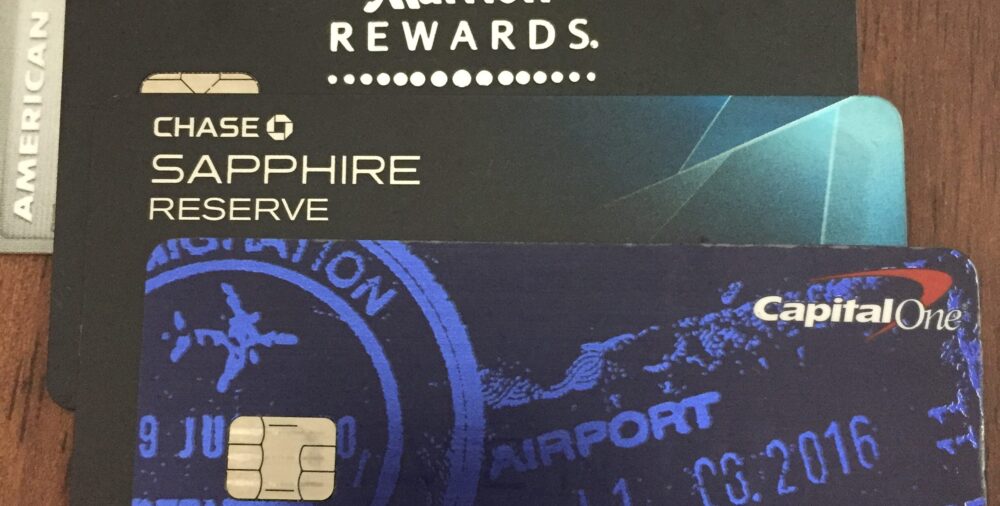I’m amazed in my interactions with friends and family how many crazy things people believe about credit cards. It takes a lot of restraint for me to not totally derail conversations and get on my soap box, trying to educate all I meet about YoungMoneyFinance topics. However, virtually I can get on my soap box and try to bust and clarify a few myths about credit cards.
Before getting to far into the article, I would ask that you read “How do Credit Cards Work” – an in depth article in which I explain how they work. Think of it as Credit Cards 101. Cool, finish reading yet? All right, let’s move on to some myths (in no particular order).
Myth #1 Don’t close your oldest credit card – it’ll hurt your score.
I’ve heard this one a lot. People are still carrying around their very first credit card that they ever got, from high school or college. It’s probably got a weird design (mine had hot air balloons), offers no rewards and doesn’t provide that great service. The truth is that it probably won’t hurt as much as you think. Your credit score is determined on a number of factors: Payment history (pay on time!), Outstanding debt (what you owe vs. the total credit limit), Length of history (how long you’ve had credit), inquires and new accounts (too many inquires looks suspicious – why are lenders looking?), and types of credit (showing you can handle different types of loans). The oldest card falls into the length of history category, which only accounts for 15% of your score. Technically closing a card will decrease your credit limit, which affects your credit utilization ration (amount owed divided by credit limit, outstanding debt category), but your first card probably had a low credit limit anyways.
Bottom line – technically this is true, but the amount your score will go down shouldn’t be that much. If you’ve moved onto bigger and better credit cards, feel free to ditch the first card you ever had that you’ve been carrying around forever.
Myth #2 Don’t have too many cards or too little cards.
I’ve heard both sides of this one, folks sticking to just one credit card for fear of messing up their credit or folks opening more cards to attempt to improve their credit. The truth here is that there is no magic right number of the number of credit cards you should have. Technically more cards could help your credit utilization ratio (more credit limit to help the equation) but a bunch of inquires and new accounts could hurt. I personally have 4 credit cards myself and I have great credit, so does my wife that has 3. Avoid opening too many cards in a short period of time (one or two a year is fine) but really there isn’t much concern from this myth.
Bottom line: There isn’t a right or wrong number of cards to have. As long as you’re current on all of them (i.e. pay them off each month), your score should be fine!
Myth #3 Maintaining a perfect score is the ultimate goal in life.
A lot of folks I meet are obsessed with their credit score, a little too obsessed. Some pay money each month to track and view their scores (which many Credit Cards now offer for free) and worry month to month what their score is. Yes, maintaining a good credit score is important. Employers, apartments, car loans, student loan refinancing and buying a house will all look at your credit score. However, a great score vs. a perfect score likely doesn’t matter. You’ll be approved and get a solid interest rate regardless. If you don’t have that great of a credit score, then yes, being concerned about it is important but don’t obsess over it. Just pay your credit cards in full on time each month, stay up to date on your other loans and your score will increase over time!
Bottom line: Don’t obsess over your credit score. If you’ve already got a great score, don’t worry. If you don’t have a great score, don’t obsessively monitor it but maintain good credit habits to improve your score.
Myth #4 Pay your balance off right before your statement closes.
Some folks will pay their balance off in full each month right before their statement closes. So if they owe $1,000 and their statement closes on July 31st, they’ll pay $1,000 on July 30th. The thinking is that this will somehow improve their score. Technically I suppose the answer is ‘yes’ by not having a balance come reporting time, you’ll have a lower credit utilization ration (amount owed divided by total credit limit) but I don’t think it looks that great to have $0 each month. A credit score shows that you can responsibly borrow money, and if your statement says $0 each month, it doesn’t really look like you’re borrowing money. I’ve got an excellent credit score and I don’t follow this guideline. My statement closes, and I pay it off in full each month.
Bottom line: Maybe yes this would help but if you’ve got a great score already I wouldn’t worry about it.
Credit Cards can be am amazing tool to earn great rewards for travel or cash back. I earn about $900 annually in travel credits, which allows my wife and I to take a nice vacation on points each year. Credit cards can be abused and getting into credit card debt can be a vicious cycle, but when used properly can be pretty incredible! Always remember – pay balances off in full each month!


 Personal Finances are certainly top of mind for many of us. If you're looking to get serious about improving your financial situation, we've got lots of great materials all over this site! Additionally, we realize that there's a lot of noise out there, and so we created PERSONAL FINANCIAL GUIDES focused on topics with all the info you need, and without any of the noise/ads/clickbait.
Personal Finances are certainly top of mind for many of us. If you're looking to get serious about improving your financial situation, we've got lots of great materials all over this site! Additionally, we realize that there's a lot of noise out there, and so we created PERSONAL FINANCIAL GUIDES focused on topics with all the info you need, and without any of the noise/ads/clickbait.